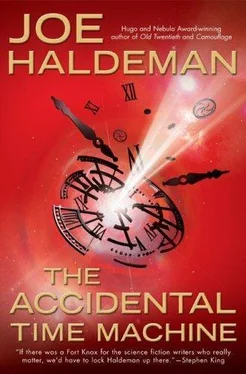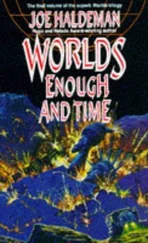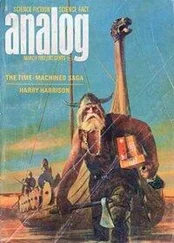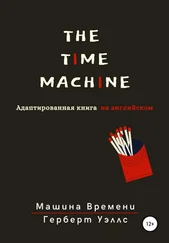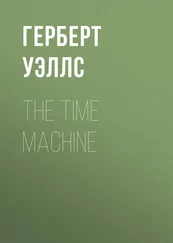A tea shop was open, so he sat down there to rest and watch the crowd. The teas on the menu were mostly herbal, probably homegrown or gathered locally. A cup of “Chinese tea” went for twenty bucks, the same as “real coffey.” He settled for a fifty-cent spearmint infusion.
So imports were expensive, even next to a huge port. It occurred to him that he hadn’t heard or seen a single airplane. At three in the afternoon the sky was a deep, unbroken blue. Had he ever seen a Boston sky without haze?
Nobody in the marketplace was wearing new-looking clothes. Maybe people didn’t dress up for going to the market. Maybe there weren’t any new clothes, or they were only for special occasions. Most of the women were dressed modestly, like Ruth, though some teenaged girls wore jeans or short skirts, startlingly seductive. That might be cultural; a sixteen-year-old was by definition a child, and so couldn’t be an object of desire.
Other men didn’t stare when they walked by. It would be prudent to follow that example.
He still had more than a mile to go, and he wanted to get to MIT well before offices closed. So rather than tarry for a second cup, he shouldered the bag and continued down the street. Where he saw a sign that stopped him in his tracks:
MASS. INST. OF THEOSOPHY, ONE MILE. It was over the MIT dome logo. What was theosophy? Had it existed in his time? He needed to Google.
“You need help, mister?” It was one of the gorgeous teenaged girls. He realized he was standing staring at the sign, and probably looked lost.
“What … uh, what’s theosophy?”
“It’s science ,” she said with careful emphasis. “The science of God. Are you a pilgrim?”
“No, I guess not. Just a traveler.”
She opened her mouth to say something, then just nodded. “Good journey, then. God b’with you.” She bounced away, running to catch up with another girl.
The science of God. He’d better study that book.
Even more than that, he needed a history book. Something huge had happened. How long ago? Was it one thing, like a cataclysm, or was it a slow evolution?
The Massachusetts Institute of Theosophy? What did they do there? He would never fit in. Matthew Fuller, professor of atheism. You will be amused by his quaint theosophy.
Or maybe they still did do science and engineering, but had to make it appear closer to religion, for some social reason. Like this Second Coming.
Soon he was walking among tall buildings that in his day had been more or less independent research establishments associated with the Institute. People like Professor Marsh would often split their time, teaching at MIT a few days a week while maintaining lab space down the street at Biotech or Allied Chemical. MIT’s charter had forbidden some kinds of work, like weapons research, but it couldn’t control what happened slightly off campus.
Those tall, proud buildings were tenements now, with clothes flapping on lines, kids playing in the dignified court-yards. Scrawny vegetable gardens where there used to be elaborate flower beds and fantastic topiary.
But the fact that people could grow vegetables out in the open and not have their crops pilfered demonstrated a reassuring degree of social order. Along with the absence of actual starvation.
No telling where MIT’s administration would be nowadays. Building One would have enough natural light, assuming no electricity, so maybe it would still be there. He angled across campus toward the Infinite Corridor.
He wasn’t sure of the history behind it, but the oldest buildings in the Infinite Corridor dated back to 1916. By the middle of the twentieth century they comprised a linked chain of consistent design that shared a corridor about a quarter-kilometer long—not quite infinite, but a hike. It was precisely straight; twice a year students could prop the doors open and the setting sun would send a beam down 850 feet of suddenly not-dingy corridor.
Maybe they still did that, but sacrificed virgins. They used to joke that that was one thing you couldn’t do at MIT, for lack of raw material. That might have changed. Depending on the theosophical attitude toward sex.
The campus wasn’t crowded, but it wouldn’t have been in August back in his time, either. The classrooms had been individually air-conditioned, to keep bills down, and the halls and unused rooms were ovens when it got into the nineties. It was close to that now. He walked up the stairs to the Infinite Corridor door and braced for a wall of heat.
It was dim and stuffy at this end, offices with closed doors. Plenty of light farther down, where there were classrooms with corridor windows and the dome’s skylight. It felt odd, walking down these halls, now yellowing whitewash instead of Institute Green, the woodwork centuries older, with amateur-looking repairs. Broken windows patched with plywood squares that didn’t look new.
The few students walked slowly and quietly, which was beyond odd. With the gloom at the periphery and overhead, and a whiff of mildew rather than the persistent subliminal tang of chemicals and machines, the place had the air of a monastery. Which it might now be.
In the rotunda windows, stained-glass panels that identified the Stations of the Cross, whatever that meant. On inspection, it was obvious that the windows had been moved here from some other source, probably a church. The panels were too small for their spaces and had to be framed in plywood, painted flat black for contrast.
Matt had noticed one improvement over the world of his last materialization, 2074, in that facial scarring was no longer the height of fashion. But it wasn’t completely gone; he’d seen a few scarred people walking the corridor, mostly older men. A few of the women had faint scar lines on their cheeks.
In fact, within the Infinite Corridor you could almost generalize that the older a man looked, the more scarred his face would be, and the scars weren’t particularly artistic. Parallel gouges on the cheeks and foreheads. Perhaps it was a fad that had recently petered out, possibly one with religious significance, and possibly more than meets the eye. God knew (presumably) what was under their robes.
Room 101 was General Administration, but the door was closed and locked. Of course; it was Sunday.
Beside the door was a handwritten list of curriculum changes for the Bachelor of Divinity degree. You now had to take Signs and Wonders 101 and 102 (instead of just Signs and Wonders 10) and Advanced Christian Ethics 111 and 112 simultaneously with two iterations of Preaching Workshop. Instead of Life Transformation, freshmen who could demonstrate their qualifications could opt for Interpretive Glossolalia.
A large man with one scar straight across his forehead came up. His cassock was blue and belted and he carried a heavy staff. He didn’t need a badge or a gun.
“You have business here, sir?”
“No, sir. I was just looking around.”
“The office will open tomorrow about ten. Until then, people who are not students or faculty ought not to be here.”
Matt didn’t protest that he was faculty, a genuine fake full professor. Instead, he meekly thanked the man and went out the front way.
It was still the impressive, sweeping colonnade, with marble steps down to the street. The steps were extremely rounded, worn down from millions of feet hurrying or trudging to class.
He had to find a place to stay and something to eat. And a bath and change of clothes; he was starting to smell like someone who had worn the same thing for a couple of centuries.
At the base of the stairs, next to what used to be a bus stop, a woman was selling clothes. A table displayed neat stacks of old shirts and trousers, and there was a rack of black academic robes, some less shabby than others.
Читать дальше
